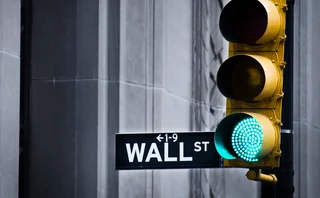
Each case on its merits
Barely a day seems to go by without the appearance of another CDO mis-selling allegation. The latest involves Bear Stearns, with that feared crusader of financial misdeeds, New York attorney-general Eliot Spitzer, serving the US dealer with a subpoena over the sale of $16 million in CDOs. That's on top of a recommendation by the US Securities and Exchange Commission to pursue a civil enforcement action against Bear Stearns over the pricing, valuation and analysis of $62.9 million in CDOs.
More are set to follow. Risk is aware of at least one other potential legal challenge in the offing, and judging by the flurry of activity within the growing community of valuation specialists, portfolio advisers and lawyers, it won't be the last.
There can be little doubt that some of the practices of overly aggressive dealers in the early days of the CDO market were, at the very least, questionable. It's long been established that some of the early balance-sheet synthetic CDOs contained so-called toxic waste – troubled credits that banks wanted to remove from their balance sheets, and so passed on to investors via CDOs.
Other transactions allowed the arranger of the deal – often also an investor in the equity tranche – to substitute credits within the portfolio. This was often presented as a selling point to investors: customers were told that the dealer's interest would be aligned with the investor's, and that any substitution would be aimed at protecting both dealer and investor against default. What many investors didn't realise was that the addition of highly correlated names would improve the value of the equity tranche – to the benefit of the dealer – but would have a negative impact on the price of the mezzanine tranches.
This all coincided with a surge in corporate defaults in 2001/02, most notably from Enron and WorldCom, credits in a good number of the early CDO portfolios. Befuddled investors were left with sizeable losses, when many were under the impression that their investments were safe.
Dealers have a duty to fully explain the risks of CDO investments, to disclose full details of the reference credits within the portfolio, to offer fair bid/offer prices, and make pricing and analysis tools available to customers. It's right that overly aggressive dealers that didn't perform these duties adequately are held accountable for those early trades.
But let's look at this from another perspective. Is it possible that some investors jump on the bandwagon and accuse banks of mis-selling, just because they recorded losses on CDO investments? Let's not forget that these are, for the most part, professional investors. If they didn't have the knowledge and ability to analyse these deals, then should they have invested in the first place? Even some of the largest, most sophisticated investors, such as the Government of Singapore Investment Corporation, have stayed away from the CDO market, acknowledging that they don't have the know-how or systems to monitor these instruments. How far should banks be responsible for the lack of expertise of those clients that did invest?
Regulators and lawyers need to be aware that CDOs themselves are not inherently bad investments, and that every transaction that lost money was not necessarily mis-sold. Each of the accusations that come to light need to be examined closely and each transaction analysed on its merits.
Nick Sawyer, Editor
Only users who have a paid subscription or are part of a corporate subscription are able to print or copy content.
To access these options, along with all other subscription benefits, please contact info@risk.net or view our subscription options here: http://subscriptions.risk.net/subscribe
You are currently unable to print this content. Please contact info@risk.net to find out more.
You are currently unable to copy this content. Please contact info@risk.net to find out more.
Copyright Infopro Digital Limited. All rights reserved.
As outlined in our terms and conditions, https://www.infopro-digital.com/terms-and-conditions/subscriptions/ (point 2.4), printing is limited to a single copy.
If you would like to purchase additional rights please email info@risk.net
Copyright Infopro Digital Limited. All rights reserved.
You may share this content using our article tools. As outlined in our terms and conditions, https://www.infopro-digital.com/terms-and-conditions/subscriptions/ (clause 2.4), an Authorised User may only make one copy of the materials for their own personal use. You must also comply with the restrictions in clause 2.5.
If you would like to purchase additional rights please email info@risk.net
More on Credit markets
Liquidnet sees electronic future for grey bond trading
TP Icap’s grey market bond trading unit has more than doubled transactions in the first quarter of 2024
Single-name CDS trading bounces back
Volumes are up as Covid-driven support fuels opportunity for traders and investors
Podcast: Richard Martin on improving credit migration models
Star quant proposes a new model for predicting changes in bond ratings
CME to pass on Ice CDS administration charges
Clearing house to hike CDS index trade fees from July after Ice’s determinations committee takeover
Buy side fuels boom in single-name CDS clearing
Ice single-name CDS volumes double year on year following switch to semi-annual rolls
Ice to clear single-name bank CDSs from April 10
US participants will be able to start clearing CDSs referencing Ice clearing members
iHeart CDS saga sparks debate over credit rules
Trigger decision highlights product's weaknesses, warns Milbank’s Williams
TLAC-driven CDS index change tipped for September
UK and Swiss bank Holdco CDSs likely inclusions in next iTraxx index roll, say strategists







